Just before the trade deadline, the San Jose Sharks traded penalty-kill specialist Barclay Goodrow to the Tampa Bay Lighting. In exchange for Goodrow and a third-round draft pick, the Sharks received a first-round pick in the upcoming draft and Anthony Greco, a career AHLer. Now, the Sharks need to replace the effective penalty-killing skills that Goodrow took with him.
Keeping Him Wasn’t an Option
With Goodrow’s contract expiring at the end of next season, the move was smart. Re-signing next season would have been difficult since the Sharks have many free agents to sign this season and his asking price would have increased.
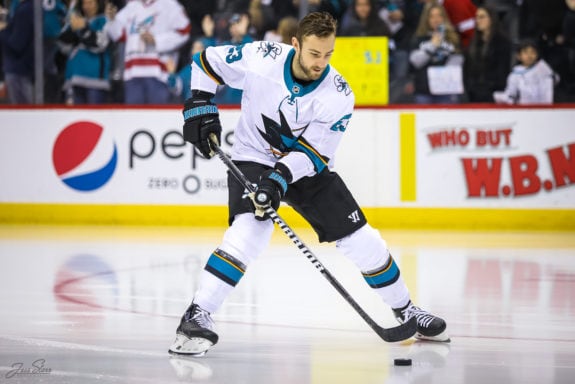
Additionally, the trade for Erik Karlsson stripped the Sharks of their first-round pick in the upcoming draft, and after such a disappointing season, top quality draft picks are extremely valuable. With Goodrow setting career-high marks and excelling on the penalty kill, San Jose may have overpriced the former undrafted player. In this respect, Wilson made the right call by upgrading a third-round pick to a first-round pick in exchange for Goodrow.
Goodrow’s Expectation Exceeding Season
But trading Goodrow still hurts. The Sharks finished the shortened season with the best penalty kill in the entire NHL. For a team that finished 29th in the league, having the best anything in the league is remarkable, let alone something as valuable as the penalty kill. The penalty kill success was led by Goodrow, who had the most time on the kill out of any Shark, according to NaturalStatTrick. With an average of 2:25 minutes of penalty kill time per game, the Sharks lost a key component to their special team success. His blocked shots per 60 minutes on the penalty kill was ranked third-best on the team and his takeaways almost double his giveaways.
Related: How to Talk Like a Hockey Player
The penalty kill wasn’t the only aspect of his game that shined this year. In his 62 games with the Sharks this season, Goodrow recorded eight goals and 16 assists for a career-high 24 points, which would have put him on track for a 31-32 point season over 82 games. Previously, his 17-point season in 2018-19 was his career milestone marker. He is an excellent depth forward and even a possible top-six—moving him out worsens the Sharks already limited forward depth.
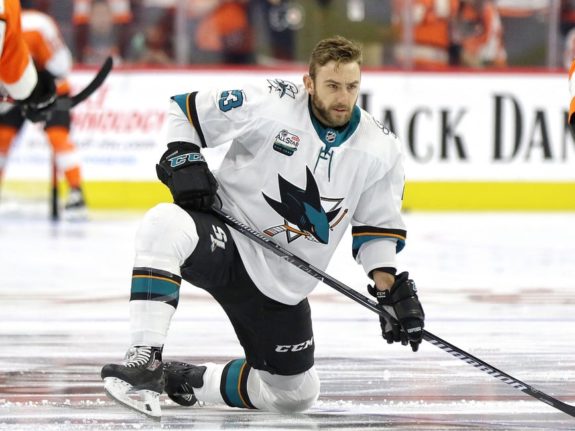
Since leaving San Jose, Goodrow has had a solid playoff run with Tampa Bay, where he has continued his penalty kill magic and has contributed three points in 12 games.
The Penalty Kill Without Goodrow
The Sharks’ penalty kill dropped from 85.7% to 82% without Goodrow. In the few weeks they played without him, the Sharks gave up four goals on 22 penalty kills, with two coming in the last game of the season against the Chicago Blackhawks. Now, killing off 82% of penalty kills would have placed them as the 10th-best penalty kill in the NHL, which is still a respectable special team unit.
Related: Where Are They Now? The Jonathan Cheechoo Edition
After finishing among the league’s worst, however, the Sharks can’t afford to give up many more goals next year. They can’t expect to improve while getting worse at one of the few things they did well. To maintain a top-penalty kill, in addition to Goodrow’s numbers, the Sharks need to replace the forward they traded.
In-House Options
Within the Sharks organization, the options are a bit slim for a first-unit penalty killer. Melker Karlsson, who was second on the team in penalty kill ice time, is a necessary re-sign for Wilson this fall. Without him, the already disappointing Sharks would lose their top two penalty killers from the season prior. If re-signed, Karlsson could see an increase in minutes, and a healthy Logan Couture or Tomáš Hertl could step-up. Ideally, Evander Kane gets fewer penalties and is able to be on the kill more rather than watching it from the box.
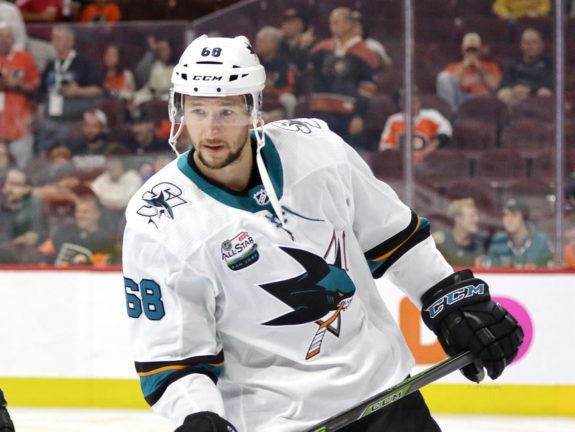
Goodrow’s 80 penalty minutes put him second on the team behind Kane’s 122. The next player, Timo Meier, only had 42 minutes in the box. It’s possible that Goodrow’s penalties negate his effectiveness on the kill, which would mean he doesn’t need an external replacement on special teams.
Free Agency
With $14 million in cap space before re-signing restricted free agents, the Sharks could re-sign a Goodrow replacement—someone who could chip in offensively while helping out on special teams. Here are some of the best, reasonably-priced options:
Jimmy Vesey
The former Hobby Baker winner Jimmy Vesey’s a comparable player to Goodrow. He has recorded three 15-plus goal seasons over the last four years. This season, he was a plus-12 on a bad Buffalo Sabers team and only spent 15 minutes in the penalty box. His strong defensive play could translate into an effective second-unit penalty kill player.
Mike Hoffman
No, the Florida Panthers’ Mike Hoffman isn’t a penalty kill player. He recorded only 2:33 minutes on the kill over the entire 2019-20 season—only a few seconds more than Goodrow’s average per game.
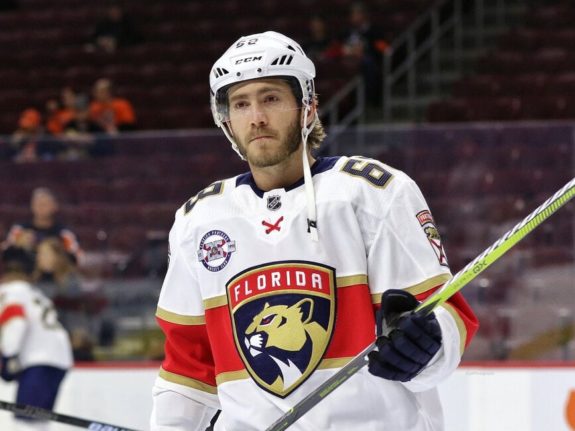
Hoffman’s 59 points in 69 games would more than replace Goodrow’s offensive talents, and his powerplay effectiveness could nullify losing their top penalty killer. Signing Hoffman would bolster the Sharks special teams in a different way than Goodrow, but helping the 24th worst powerplay isn’t a bad idea if they want to compete next year.
Anthony Cirelli
Tampa Bay’s Anthony Cirelli will be an RFA at the end of the playoffs, and while there is a good chance he gets re-signed, the Lightning have just over $1 million in cap space for the next season. If he doesn’t re-sign, he would be a great Goodrow replacement.
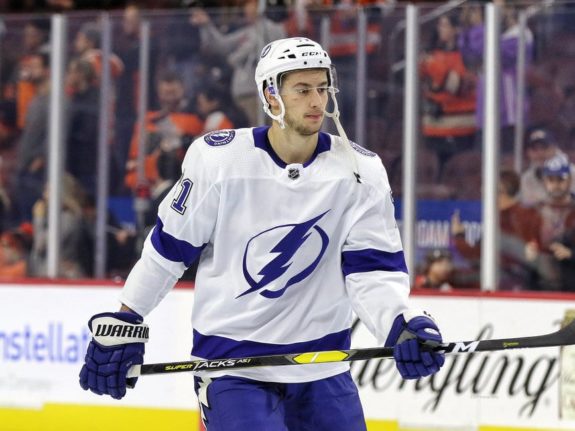
His 190:49 minutes on the penalty kill was second among all NHL forwards and his 44 points would support San Jose’s offense. Depending on what happens in this year’s playoffs, Cirelli may have a Stanley Cup to show as well. Cirelli’s a center, and even if Joe Thornton returns, he would likely find himself on the third line, which would provide top-notch depth down the center for the Sharks.
What is Goodrow Worth?
All in all, it comes down to whether or not Wilson thinks he can put together a winning hockey team without replacing the special team gap left by Goodrow’s departure. In other words, how much is Goodrow worth to this Sharks team?
As an undrafted player who handicaps his team with lots of penalty minutes but is a valuable penalty killer and can contribute third-line numbers, Goodrow is probably worth, say, a mid-first-round draft pick—exactly what the Sharks received in return. But these Sharks seem to want to succeed now, not rebuild for later, and if that’s the case, signing a second or third-line forward with special team skills is a must for San Jose to succeed next season. It would just be icing on the cake if their pick from Tampa Bay ends up being NHL ready.